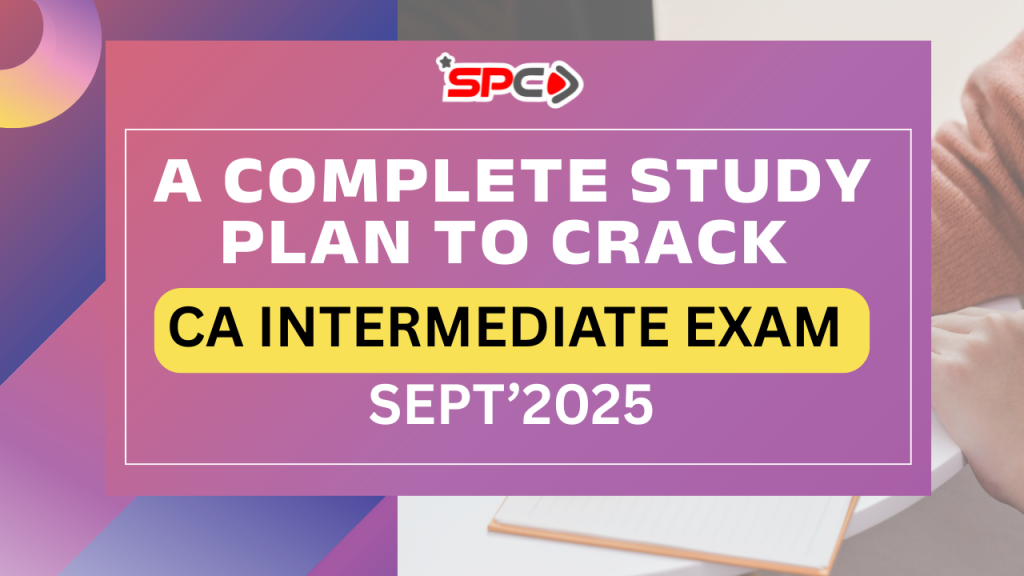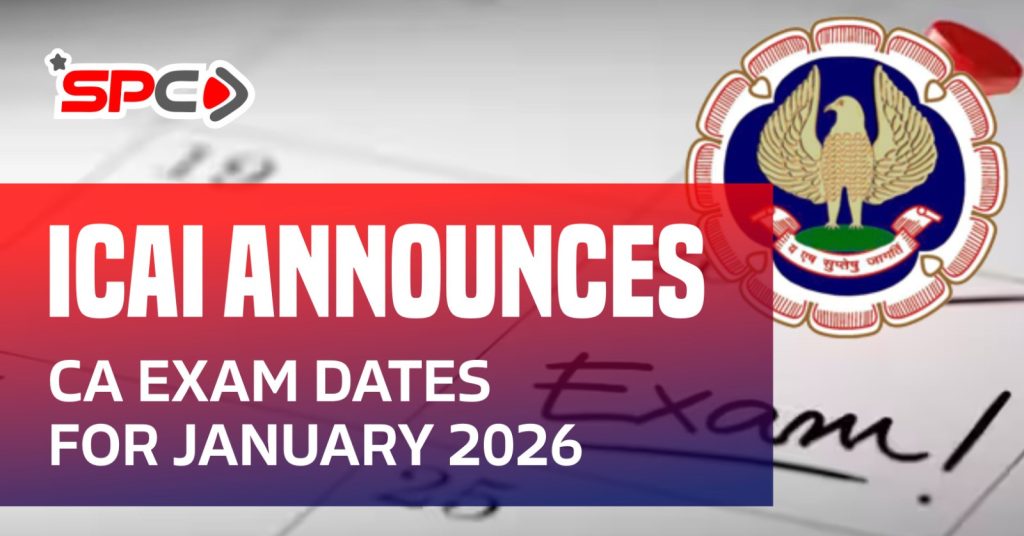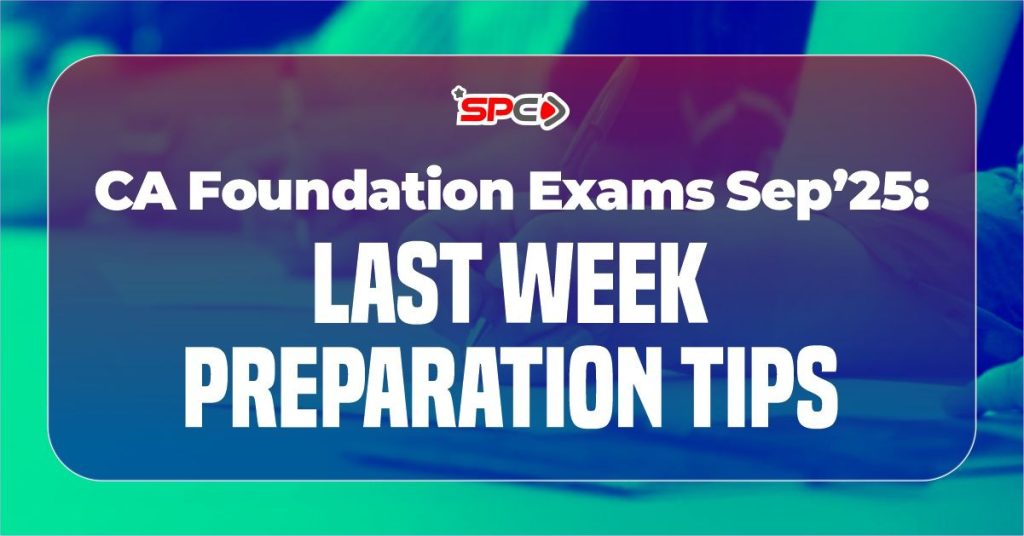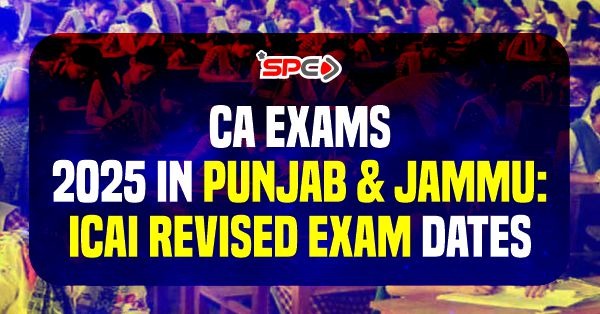Becoming a Chartered Accountant is a long journey that comes with consistent preparations, hard work, and a strategic mindset.
The CA Intermediate examination is a major hurdle, and as the September 2025 attempt is quickly approaching, it’s time to put your head down with a robust and effective plan.
This practical guide can help you prepare for the CA Inter September 2025 exams with effective timelines and preparations.
Understanding the CA Intermediate Exam
Before you dive into studying, it’s crucial to understand what you’re up against.
1. CA Intermediate Exam Pattern and Syllabus
The CA Intermediate examination pattern is quite simple to understand. Students should know that there are two main groups, each of them has three exams. After ICAI launched the new scheme, groups now consist of 30% objective (MCQ) and 70% descriptive questions. The good news is there is no negative marking on MCQs.
Group 1 Subjects:
- Paper 1: Advanced Accounting (100 Marks – 30% Objective, 70% Descriptive)
- Paper 2: Corporate and Other Laws (100 Marks – 30% Objective, 70% Descriptive)
- Paper 3: Taxation (100 Marks – 30% Objective, 70% Descriptive)
- Part A: Income Tax Law (60 Marks)
- Part B: Goods and Services Tax (GST) (40 Marks)
Group 2 Subjects:
- Paper 4: Cost and Management Accounting (100 Marks – 30% Objective, 70% Descriptive)
- Paper 5: Auditing and Ethics (100 Marks – 30% Objective, 70% Descriptive)
- Paper 6: Financial Management & Strategic Management (100 Marks – 30% Objective, 70% Descriptive)
- Part A: Financial Management (50 Marks)
- Part B: Strategic Management (50 Marks)
2. Important Dates (Tentative)
The CA Intermediate September 2025 exams are expected to be conducted from September 4 to September 15, 2025.
- Group 1 Exams: September 4, 7, and 9, 2025
- Group 2 Exams: September 11, 13, and 15, 2025
Crafting Your Study Schedule: A 90-Day Roadmap
With approximately 90 days (June 24 to September 3) until the exams, a disciplined approach is crucial. This roadmap assumes you are starting your intensive preparation now.
1. Decide: One Group or Both Groups?
This is a critical decision.
- Both Groups: If your foundation is strong and you can dedicate 10-12 hours daily with high efficiency, attempting both groups can offer the benefit of set-off marks between them.
- One Group: If your time is short, or you’re weak in some areas, it is best to be good at clearing one group rather than fail both. It’s a better use of your time to get one group with clear mind than a sifted mind, going through them both.
2. Phase 1: Conceptual Clarity & First Reading (Approx. June 24 – July 23) – 30 Days
The first month is all about building a strong foundation.
- Allocate Time: Aim for 8-10 hours of focused study daily (for one group) or 10-12 hours (for both groups).
- Subject Rotation: Don’t stick to one subject for too long. Rotate between a practical and a theory subject daily or every two days. For example:
- Morning (3-4 hours): Practical Subject (Accounts/Costing/FM)
- Afternoon (3-4 hours): Theory Subject (Law/Audit/EIS-SM/Tax Theory)
- Evening (2-3 hours): Problem Solving/Revision of the day’s topics
- Focus on ICAI Study Material: Try to read your study material as much as you can to find the answers of your queries.
- Understand, Don’t Just Memorize: For practical subjects, focus on the “why” behind each concept and problem-solving technique. For theory, understand the provisions and their implications.
- Make Short Notes/Summaries: As you study each chapter, prepare crisp, handwritten notes or mind maps. Making note will become important at the time of revisions.
- Solve Module Questions: After completing a topic, immediately solve all the questions from the ICAI Study Material’s illustrations and exercises.
3. Phase 2: Intensive Practice & Second Revision (Approx. July 24 – August 23) – 30 Days
This phase is about solidifying your understanding and identifying weak areas.
- Solve Past Papers & RTPs/MTPs: Start solving questions from previous year’s papers, ICAI Revision Test Papers (RTPs), and Mock Test Papers (MTPs). Aim to solve at least the last 3-4 attempts’ papers.
- Time-Bound Practice: When solving problems, especially for practical subjects, do it under timed conditions to improve speed and accuracy.
- Find Gap Areas: Make a note of questions or topics on which you continuously get wrong answers on the tests. Make sure to spend time reviewing these items.
- Active Recall: Instead of reading again, test yourself. Close your book. Bring to mind the information that you learned. Explain concepts to yourself or a study partner.
- Doubt Clarification: Don’t create a pile of doubt. Ask your teacher, mentor, or study group to clarify it right away.
4. Phase 3: Final Revision & Mock Tests (Approx. August 24 – September 3) – 10 Days
This is the crucial phase for fine-tuning your preparation and building exam temperament.
- Several Revisions: When doing revision for your exams we would suggest aiming for a minimum of 2-3 very quick revisions across all subjects in the course of doing revision. When viewing notes made from self-study, or understanding highlighted in the ICAI modules, formulas and ideas for each subject.
- Full-Length Mock Tests: This is non-negotiable. Take at least 2-3 full-length mock tests for each paper under actual exam conditions (3 hours, no breaks). This will help you:
- Manage time effectively.
- Understand the exam pattern and question types.
- Identify areas where you need to improve speed or presentation.
- Reduce exam day anxiety.
- Analyze Mock Test Performance: Don’t just take tests; analyze your performance. Understand where you lost marks – was it conceptual error, silly mistake, or time management?
- Prioritize Amendments: Especially for Law and Taxation, stay updated with the latest amendments issued by ICAI. These are frequently tested.
- Avoid New Topics: In the last few days, avoid starting any new topics. Focus on consolidating what you’ve already learned.
Effective Study Techniques for CA Inter Sep 2025
Beyond the schedule, how you study matters.
- Prioritize Practical Subjects: Since most CA Inter subjects have a significant practical component, dedicate more time to practicing problems.
- Handwritten Notes: Writing down key points, formulas, and tricky adjustments helps in better retention and faster revision.
- Active Learning: Instead of just reading the material passively, engage with it. Question yourself, summarize, and explain the concepts aloud.
- Spaced Repetition: Go back over your topics with increasing intervals to strengthen memory. For example, go back over your readings daily, then weekly and then maybe every month.
- Mnemonics and Visual Aids: Use acronyms, flow charts, diagrams for remembering complex provisions, or lists.
Fasten Up Your CA Intermediate Preparations with Swapnil Patni Classes
For aspirants aiming to conquer the CA Intermediate exam, Swapnil Patni Classes (SPC) stands as a beacon of quality education. Renowned for its innovative teaching methodologies and a student-centric approach, SPC has consistently delivered exceptional results, boasting numerous All India Ranks.
SPC recognizes that everyone learns differently and that’s why we offer a choice of learning via live online, recorded lectures (available via the SPC Prime app) or face to face classes.
SPC has trained over 350,000 students and has produced 600+ AIRs, including several number one AIRs.
When you join Swapnil Patni Classes, you are not simply joining a coaching institute; you are joining an ecosystem designed to help you at every stage of your journey to accomplish your CA dream for the September 2025 attempt.





